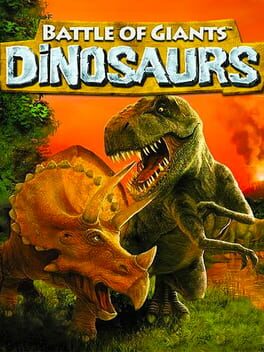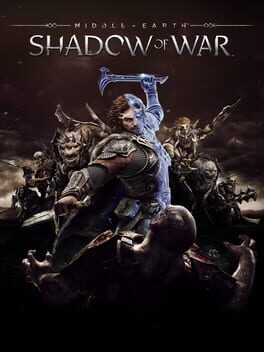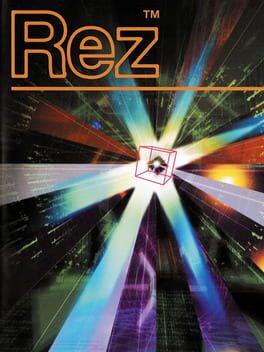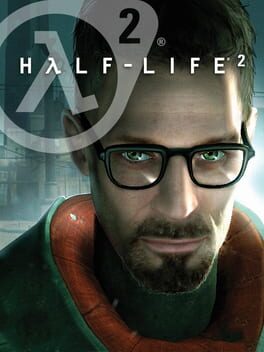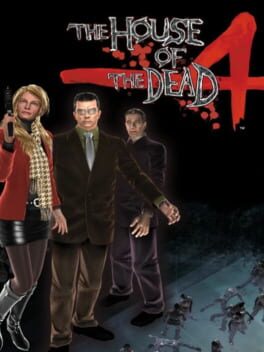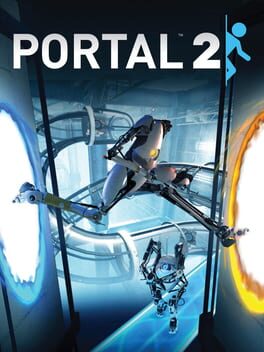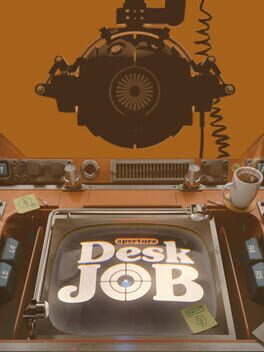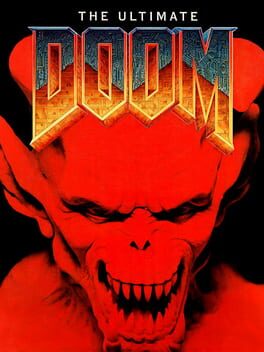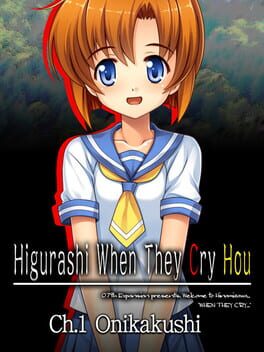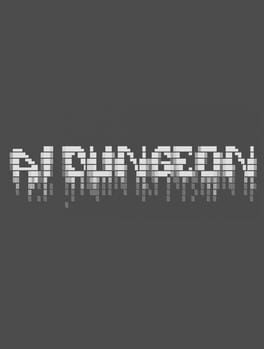LinkBetweenGames
(I had technically beaten this game two weeks ago, but I wanted to wait until I had gotten the true ending before writing a review.)
Before this game came out, it was facing impossible expectations. In less than half a decade, Breath of the Wild became renowned as one of the greatest games of all time, and it is still my favorite videogame of all time, so making a direct sequel to it looked like trying to catch lightning in a bottle twice. Did Nintendo achieve the impossible? Well, yes and no.
In many areas, Tears of the Kingdom exceeds its predecessor. The area this is most apparent in is the core gameplay. There are even more methods of approaching combat, exploration, and puzzles, and yet they all feel satisfying on a tactile level. Somehow even grinding feels fun to do. Overall, this game might have the most satisfying core gameplay of any game I have ever played.
Tears of the Kingdom exceeds its predecessor in world design as well. Hyrule in this game feels like a lived-in place with history, and this comes across in every nook and cranny of the kingdom. The Sky and the Depths aren’t as concentrated as the Surface, but they are still full of secrets, challenges, and lore. The world is also very atmospheric. I could spend hours sitting on top of the Light Dragon’s head, Dragonhead Island, or a Rauru’s Blessing shrine, just listening to the music and taking in the sights.
So, why isn’t this usurping Breath of the Wild? Why does it have a lower rating, and isn’t in my top five? The answer to the former question is that Breath of the Wild is too personal to me. It came at just the right time in my life and blew me away. The latter question, though, leads to the major problems of Tears of the Kingdom, specifically two areas that drag the experience down.
The first is a literal area: The Great Sky Island. Nintendo clearly tried to replicate the Great Plateau here, but they seemed to miss some of the key things that made the Great Plateau so fun. First, the Great Plateau felt like a self-contained sandbox in itself, where players could go in any direction within its boundaries as long as they could face the consequences. GSI is far more linear, with arbitrary checks and only two viable paths unless you use speedrunning strats. While it is still fun and there are secrets throughout, the frustrating linearity of the tutorial sequence means it feels like a hurdle to get over on subsequent playthroughs. Secondly, Rauru is handled rather poorly compared to the Old Man. The appeal of the Old Man was that, while he clearly had something up his sleeve, he was a comforting presence who participated in gameplay moments and felt like a mentor to the player. Meanwhile, Rauru is established as a royal ghost who is withholding important information from the start, he only stands in specific spots and gives random bits of lore, and he arbitrarily railroads the player on multiple occasions. Overall, the Great Sky Island feels like it’s playing second fiddle to the Great Plateau.
The second problem, and the largest one, is with the story and the way it is told during the main quests. While I wasn’t a fan of Breath of the Wild’s story on release, that grew on me over time, something I don’t think this one will. Everything related to the Light Dragon and Phantom Ganon is great, and this version of Ganondorf is second only to Wind Waker’s. However, the rest of the characters are woefully underdeveloped, most glaringly Link. That may sound odd considering Link is supposed to be an avatar for the player, but the events of this game are very personal to Link. Despite that, he barely reacts to major story moments, aside from the ending. Allowing Link more expression in these moments would not decrease immersion, it would heighten immersion.
(Side note: Apparently in the original Japanese version Link has a diary that updates with the quests. I have no idea why this was cut from the localizations, but until the diary entries are translated into English I have to go on the experience of my native localization.)
This leads to Tears of the Kingdom’s most baffling problem: The main quests don’t adapt enough to player actions. In fact, they seem to adapt less than Breath of the Wild’s main quests, despite Tears of the Kingdom having a more complex main story. This is most obvious in regards to “The Dragon’s Tears,” a quest that should affect the rest of the main quests but doesn’t at all.
Lastly, Tears of the Kingdom’s story lacks the vibes that made Breath of the Wild’s story so special. Breath of the Wild had a mysterious and tragic air throughout, even in its happiest ending. Tears of the Kingdom, in comparison, leans into high fantasy hard. On the one hand, this makes sense for a story about demon kings and immortal dragons. On the other hand, there aren’t enough moments in the main story that feel grounded in the same way Breath of the Wild was. This is probably a personal preference, but it affected how I viewed every cutscene and major character, so I need to mention it.
Overall, Tears of the Kingdom greatly improves on probably the most important parts of Breath of the Wild, and is an amazing experience throughout, but I can’t say it truly reaches the same levels of greatness as a videogame. I still highly recommend it, especially if you want to build penis flamethrowers to destroy monsters.
(Edit: Reposting this because I had accidentally edited my pre-release review before.)
Before this game came out, it was facing impossible expectations. In less than half a decade, Breath of the Wild became renowned as one of the greatest games of all time, and it is still my favorite videogame of all time, so making a direct sequel to it looked like trying to catch lightning in a bottle twice. Did Nintendo achieve the impossible? Well, yes and no.
In many areas, Tears of the Kingdom exceeds its predecessor. The area this is most apparent in is the core gameplay. There are even more methods of approaching combat, exploration, and puzzles, and yet they all feel satisfying on a tactile level. Somehow even grinding feels fun to do. Overall, this game might have the most satisfying core gameplay of any game I have ever played.
Tears of the Kingdom exceeds its predecessor in world design as well. Hyrule in this game feels like a lived-in place with history, and this comes across in every nook and cranny of the kingdom. The Sky and the Depths aren’t as concentrated as the Surface, but they are still full of secrets, challenges, and lore. The world is also very atmospheric. I could spend hours sitting on top of the Light Dragon’s head, Dragonhead Island, or a Rauru’s Blessing shrine, just listening to the music and taking in the sights.
So, why isn’t this usurping Breath of the Wild? Why does it have a lower rating, and isn’t in my top five? The answer to the former question is that Breath of the Wild is too personal to me. It came at just the right time in my life and blew me away. The latter question, though, leads to the major problems of Tears of the Kingdom, specifically two areas that drag the experience down.
The first is a literal area: The Great Sky Island. Nintendo clearly tried to replicate the Great Plateau here, but they seemed to miss some of the key things that made the Great Plateau so fun. First, the Great Plateau felt like a self-contained sandbox in itself, where players could go in any direction within its boundaries as long as they could face the consequences. GSI is far more linear, with arbitrary checks and only two viable paths unless you use speedrunning strats. While it is still fun and there are secrets throughout, the frustrating linearity of the tutorial sequence means it feels like a hurdle to get over on subsequent playthroughs. Secondly, Rauru is handled rather poorly compared to the Old Man. The appeal of the Old Man was that, while he clearly had something up his sleeve, he was a comforting presence who participated in gameplay moments and felt like a mentor to the player. Meanwhile, Rauru is established as a royal ghost who is withholding important information from the start, he only stands in specific spots and gives random bits of lore, and he arbitrarily railroads the player on multiple occasions. Overall, the Great Sky Island feels like it’s playing second fiddle to the Great Plateau.
The second problem, and the largest one, is with the story and the way it is told during the main quests. While I wasn’t a fan of Breath of the Wild’s story on release, that grew on me over time, something I don’t think this one will. Everything related to the Light Dragon and Phantom Ganon is great, and this version of Ganondorf is second only to Wind Waker’s. However, the rest of the characters are woefully underdeveloped, most glaringly Link. That may sound odd considering Link is supposed to be an avatar for the player, but the events of this game are very personal to Link. Despite that, he barely reacts to major story moments, aside from the ending. Allowing Link more expression in these moments would not decrease immersion, it would heighten immersion.
(Side note: Apparently in the original Japanese version Link has a diary that updates with the quests. I have no idea why this was cut from the localizations, but until the diary entries are translated into English I have to go on the experience of my native localization.)
This leads to Tears of the Kingdom’s most baffling problem: The main quests don’t adapt enough to player actions. In fact, they seem to adapt less than Breath of the Wild’s main quests, despite Tears of the Kingdom having a more complex main story. This is most obvious in regards to “The Dragon’s Tears,” a quest that should affect the rest of the main quests but doesn’t at all.
Lastly, Tears of the Kingdom’s story lacks the vibes that made Breath of the Wild’s story so special. Breath of the Wild had a mysterious and tragic air throughout, even in its happiest ending. Tears of the Kingdom, in comparison, leans into high fantasy hard. On the one hand, this makes sense for a story about demon kings and immortal dragons. On the other hand, there aren’t enough moments in the main story that feel grounded in the same way Breath of the Wild was. This is probably a personal preference, but it affected how I viewed every cutscene and major character, so I need to mention it.
Overall, Tears of the Kingdom greatly improves on probably the most important parts of Breath of the Wild, and is an amazing experience throughout, but I can’t say it truly reaches the same levels of greatness as a videogame. I still highly recommend it, especially if you want to build penis flamethrowers to destroy monsters.
(Edit: Reposting this because I had accidentally edited my pre-release review before.)
If you are familiar with my Letterboxd account, you know that when I give something a 4 out of 5, that means I would recommend it to everyone. That description is stretching it for this game, which I would recommend to everyone... who is willing to trudge through a generic opening and boring main quest to get to the meat of the Nemesis system. The Nemesis system, however, might be the greatest piece of ludonarrative design I have ever seen. The game remembers so many things you wouldn't have thought it would, and your actions are reflected back at you. When a game makes me emotional about a procedurally generated ally turning against me, that's how you know it's great. Overall, the graphics and main story might be shit, and the mechanics might be just a slightly revised version of Batman Arkham mechanics, but I will always cherish my time in Mordor, and I can't wait to jump in again.
2001
Wow. It has been a while since I played a game this good. It transitions extremely well from "arthouse synesthesia experience" to "extremely stressful shooter." Even without much of a plot, it succeeds so well as a gameplay and cultural experience that it earns a place in my Hall of Fame.
Also, after playing I used the Grove Dictionary of Art to look up Wassily Kandinsky, which probably shows how much of an art history nerd I am.
Also, after playing I used the Grove Dictionary of Art to look up Wassily Kandinsky, which probably shows how much of an art history nerd I am.
"Do you want to watch the fireworks?"
It took only seven minutes for this to wreck me. The ending could have been handled a tiny bit better, but I can still easily say this is in my top 10 favorite games of all time.
Edit: I was considering putting this in my GOTY awards, but it is under 30 minutes, so I feel like that is unfair to games this year that maintained a structural cohesion over a much longer playtime.
It took only seven minutes for this to wreck me. The ending could have been handled a tiny bit better, but I can still easily say this is in my top 10 favorite games of all time.
Edit: I was considering putting this in my GOTY awards, but it is under 30 minutes, so I feel like that is unfair to games this year that maintained a structural cohesion over a much longer playtime.
2022
(Gameplay spoilers ahead)
You would think that a game that floored me multiple times, made me hyped about characters that were introduced in the same game, made me cry tears of joy during the good ending, and has a glorious final boss fight and one of the greatest moments in gaming (the bad ending) would have a rating of at least 4.5 stars.
You would think that a game that floored me multiple times, made me hyped about characters that were introduced in the same game, made me cry tears of joy during the good ending, and has a glorious final boss fight and one of the greatest moments in gaming (the bad ending) would have a rating of at least 4.5 stars.
You would think that a game that floored me multiple times, made me hyped about characters that were introduced in the same game, made me cry tears of joy during the good ending, and has a glorious final boss fight and one of the greatest moments in gaming (the bad ending) would have a rating of at least 4.5 stars.
At this point, you might be able to tell what my largest problem is. There is so much repetition. To get just the good and bad endings (not even the neutral one), you need to go through the same dungeon three times (four times if you are trying to fight all the bosses and do an action that could send you to the other side of the map) and fight some variation of the same seven bosses three times, watching the same cutscenes each time. Not only this, but dialogue is repeated a ridiculous amount of times, as if the writers thought puny player brains couldn't remember the well-written emotional moments.
Overall, I still highly recommend it, but be warned about that, the varying quality of chapters, and the fact that Square Enix's lawyers are dicks.
TLDR: Your savior is cum.
You would think that a game that floored me multiple times, made me hyped about characters that were introduced in the same game, made me cry tears of joy during the good ending, and has a glorious final boss fight and one of the greatest moments in gaming (the bad ending) would have a rating of at least 4.5 stars.
You would think that a game that floored me multiple times, made me hyped about characters that were introduced in the same game, made me cry tears of joy during the good ending, and has a glorious final boss fight and one of the greatest moments in gaming (the bad ending) would have a rating of at least 4.5 stars.
You would think that a game that floored me multiple times, made me hyped about characters that were introduced in the same game, made me cry tears of joy during the good ending, and has a glorious final boss fight and one of the greatest moments in gaming (the bad ending) would have a rating of at least 4.5 stars.
At this point, you might be able to tell what my largest problem is. There is so much repetition. To get just the good and bad endings (not even the neutral one), you need to go through the same dungeon three times (four times if you are trying to fight all the bosses and do an action that could send you to the other side of the map) and fight some variation of the same seven bosses three times, watching the same cutscenes each time. Not only this, but dialogue is repeated a ridiculous amount of times, as if the writers thought puny player brains couldn't remember the well-written emotional moments.
Overall, I still highly recommend it, but be warned about that, the varying quality of chapters, and the fact that Square Enix's lawyers are dicks.
TLDR: Your savior is cum.
2004
Some people have said that this is the Citizen Kane of videogames. In reality, its enigmatic nature makes it closer to the Lighthouse of videogames. That is, if The Lighthouse had blade saws and zombies and gunboats and building an antlion army and a trashcan and a soda can. Needless to say, this is awesome. The only times I got frustrated were when I was stuck in the mentality of "kill every enemy you face," which obviously won't work in some chapters. Every chapter is uniquely brilliant, and the story is very compelling. Overall, a fine addition to my collection of favorite games.
But minus half a star for not having any music during the final fight.
But minus half a star for not having any music during the final fight.
Goldman just like me fr fr
Pessimism about the fate of the planet aside, this was a surprisingly fun arcade game. Being able to add in a second gun without paying extra was a nice touch, the gunplay was very natural, and most boss fights were well-designed (although The Star and the subway chainsaw guy were complete bullshit). That, combined with an engaging (albiet slightly confusing) story, makes this a high point in penny-guzzling rail shooters.
Pessimism about the fate of the planet aside, this was a surprisingly fun arcade game. Being able to add in a second gun without paying extra was a nice touch, the gunplay was very natural, and most boss fights were well-designed (although The Star and the subway chainsaw guy were complete bullshit). That, combined with an engaging (albiet slightly confusing) story, makes this a high point in penny-guzzling rail shooters.
2020
(This is more of a story about my experience with the game than a review. It spoils the end of the first run. If you want to know how good the game is, it's great. Some mechanics were a bit unclear, but overall it's very well-designed.)
During the past three weeks, I was working at an overnight summer camp. In the staff lounge, there was a Switch. I was excited because I could play Smash and Mario Kart. However, one of my coworkers brought a copy of Hades. One night, after dying again, he passed the controller to me. "Wanna try it?" he said. I said sure. I had heard much about this game, and I wanted to try it for myself.
From that first run, I was hooked. I started my own save file and became invested in both the gameplay loop and the story. Nearly all of my time off I spent on Hades. That is, until something happened.
Most staff members were granted one 6-hour period of time off during the summer. When mine came, I went down to the staff lounge and started playing. But something was different this time. I didn't want to see Zagreus die anymore, even though that would allow me to see more of the story. I wanted him to escape. So I did something that devastated the hardcore gamer in me: I turned on God Mode. After nearly five hours, I reached the eponymous boss before dying again. I should have seen the writing on the wall and realized I wasn't going to complete a run that night. However, I didn't. I tried again, this time dying to a butterfly in Elysium. Frustrated, I had a near-midnight snack and then went to bed.
During the next day, images of the game flashed whenever I closed my images. I suffering videogame compulsion, the restless wanting of a game that is often mistaken for addiction. I cut myself off from Hades for the rest of the time campers were there.
On the day campers left, I returned to the staff lounge for a few hours before staff banquet. As the strumming guitars of the main theme started, I realized something: This was personal. If Zagreus could escape the Underworld, then I could finish something. I could write a book, or a composition, or see something to the end. I could do something with my life without messing up. I could be a person people admire. With this in the back of my mind, I began another attempt.
I didn't complete a run that night. The next day, after finishing work around camp, I went back, missing out on the other staff hanging out. With a plan in mind, I started another attempt. After three or four more attempts, I finally beat Hades. The boss, at least.
Then Zagreus, sitting with his mother in her garden, realized he could not stay. He was made of blood and darkness, and as much as he hated it, the Underworld was part of him. As he realized that, I had a similar realization. I cannot change who I am. I can be the best version of myself, but the core of who I am will always be with me.
As Zagreus was taken by the Styx back to the House of Hades, I paused for a moment, then closed the game. Although I am sure there are more runs left in the game and an ending where Zag is able to stay with his mother, I learned my lesson from the game, and my time with it is complete. So thank you, Supergiant Games. Not just for creating a great videogame, but also for creating the vessel for my own personal journey.
During the past three weeks, I was working at an overnight summer camp. In the staff lounge, there was a Switch. I was excited because I could play Smash and Mario Kart. However, one of my coworkers brought a copy of Hades. One night, after dying again, he passed the controller to me. "Wanna try it?" he said. I said sure. I had heard much about this game, and I wanted to try it for myself.
From that first run, I was hooked. I started my own save file and became invested in both the gameplay loop and the story. Nearly all of my time off I spent on Hades. That is, until something happened.
Most staff members were granted one 6-hour period of time off during the summer. When mine came, I went down to the staff lounge and started playing. But something was different this time. I didn't want to see Zagreus die anymore, even though that would allow me to see more of the story. I wanted him to escape. So I did something that devastated the hardcore gamer in me: I turned on God Mode. After nearly five hours, I reached the eponymous boss before dying again. I should have seen the writing on the wall and realized I wasn't going to complete a run that night. However, I didn't. I tried again, this time dying to a butterfly in Elysium. Frustrated, I had a near-midnight snack and then went to bed.
During the next day, images of the game flashed whenever I closed my images. I suffering videogame compulsion, the restless wanting of a game that is often mistaken for addiction. I cut myself off from Hades for the rest of the time campers were there.
On the day campers left, I returned to the staff lounge for a few hours before staff banquet. As the strumming guitars of the main theme started, I realized something: This was personal. If Zagreus could escape the Underworld, then I could finish something. I could write a book, or a composition, or see something to the end. I could do something with my life without messing up. I could be a person people admire. With this in the back of my mind, I began another attempt.
I didn't complete a run that night. The next day, after finishing work around camp, I went back, missing out on the other staff hanging out. With a plan in mind, I started another attempt. After three or four more attempts, I finally beat Hades. The boss, at least.
Then Zagreus, sitting with his mother in her garden, realized he could not stay. He was made of blood and darkness, and as much as he hated it, the Underworld was part of him. As he realized that, I had a similar realization. I cannot change who I am. I can be the best version of myself, but the core of who I am will always be with me.
As Zagreus was taken by the Styx back to the House of Hades, I paused for a moment, then closed the game. Although I am sure there are more runs left in the game and an ending where Zag is able to stay with his mother, I learned my lesson from the game, and my time with it is complete. So thank you, Supergiant Games. Not just for creating a great videogame, but also for creating the vessel for my own personal journey.
2011
2022
Pretty sus how the game asks you for your voice and signature. I wonder how long it will be until Valve has control of some high-level economic institutions.
I don't often say that a game is too short, but this one really is. The gameplay and humor are so great, and it feels like it was just getting started by the time it ends. However, it still is a pretty great proof-of-concept game. Just make sure you don't use your real name or signature.
I don't often say that a game is too short, but this one really is. The gameplay and humor are so great, and it feels like it was just getting started by the time it ends. However, it still is a pretty great proof-of-concept game. Just make sure you don't use your real name or signature.
1995
I really don't know what to think of this from a gameplay perspective. Outside of the Tips system, there is basically no gameplay, and at first that was really annoying. However, I really got used to it as I went along, although there were still plenty of moments where I wished this was a novel or a 4-hour-long arthouse film. The story is extremely well told, although Keichii being just a generic anime protagonist made some moments really annoying. Also I thought it was hilarious how Tomitake was first described as an "average-looking man" right as they show an insanely buff person, but thankfully they acknowledged it later. I probably won't continue for many reasons, including the fact that I'll be taking a break from videogames soon and how well this first chapter works as a self-contained story. Overall, surprisingly good, especially the soundtrack.
2007
"You're going the wrong way. Because I don't think you're going where you think you're going."
Horrifying yet brilliant exploration of entrapment and indoctrination.
But forget all that intellectual mumbo-jumbo, here's the real reason I gave it five stars: https://youtu.be/Y6ljFaKRTrI
Horrifying yet brilliant exploration of entrapment and indoctrination.
But forget all that intellectual mumbo-jumbo, here's the real reason I gave it five stars: https://youtu.be/Y6ljFaKRTrI
2019

